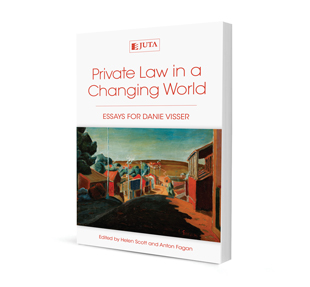The challenges of private law: A research agenda for an autonomy-based private law

The challenges of private law: A research agenda for an autonomy-based private law
Authors H Dagan
ISSN: 1996-2088
Affiliations: Stewart and Judy Colton Professor of Legal Theory and Innovation and Director, The Edmond J Safra Center for Ethics, Tel-Aviv University
Source: Acta Juridica, 2019, p. 3 – 33
Abstract
Properly understood, private law establishes ideal frameworks for respectful interactions between self-determining individuals, which are indispensable for a society where all recognise one another as genuinely free and equal agents. Only private law can form and sustain the variety of frameworks necessary for our ability to lead our chosen conception of life. And only private law can cast them as interactions between free and equal individuals who respect one another as the persons they actually are, thus vindicating the demands of relational justice. Hence, the two animating principles of a liberal (that is, autonomy-enhancing) private law – structural pluralism and interpersonal accommodation. Building on this account of private law, this essay offers a preliminary survey of three important challenges to private law in a liberal society. One challenge, prompted by the injunction of structural pluralism, is that of identifying missing frameworks, that is: detecting spheres of life in which private law fails to supply a sufficiently diverse set of alternative property institutions or contract types and is thus insufficiently autonomy-enhancing. Another challenge emerges whenever the constitutive good(s) of the social practice that the parties engage in are in tension with the injunction of interpersonal accommodation. These cases require private law either to allow these goods to override the injunction of interpersonal accommodation or else to discard or reform the pertinent legal (and social) practice. Finally, because the intrinsic value of private law does not require treating private law and public law as mutually exclusive categories, private law can consider utilising public law (vertical) mechanisms to help secure its horizontal mission and must be careful not to undermine the liberal state’s commitments to distributive justice, democratic citizenship and aggregate welfare. I thus conclude with a consideration of the ways in which private law can coordinate with public law, namely: either supplement its doctrinal framework with a regulatory infrastructure or adapt it in order to address pertinent public commitments while still meeting the demands of relational justice.